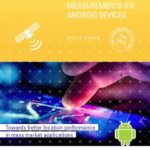Following the April 1 entry into force of the European eCall regulation, requiring all new car and light van types sold in the EU to be fitted with the emergency systems, Swedish automobile manufacturer Volvo Cars has taken the lead as the first car-maker to equip its vehicles with eCall.
The eCall device in the Volvo vehicles is manufactured by ACTIA Nordic in Sweden and has been successfully tested by NavCert´s eCall Laboratory in Germany. The readiness of automotive suppliers and technical services to equip the vehicles was partially due to actions taken by the European GNSS Agency (GSA) and the European Commission’s Joint Research Centre, who launched a testing campaign and produced a joint report containing a set of guidelines to facilitate the implementation of eCall testing in compliance with the EU Regulation. Read more…





